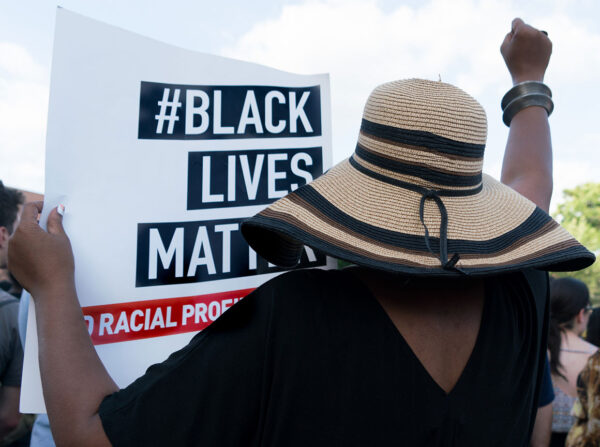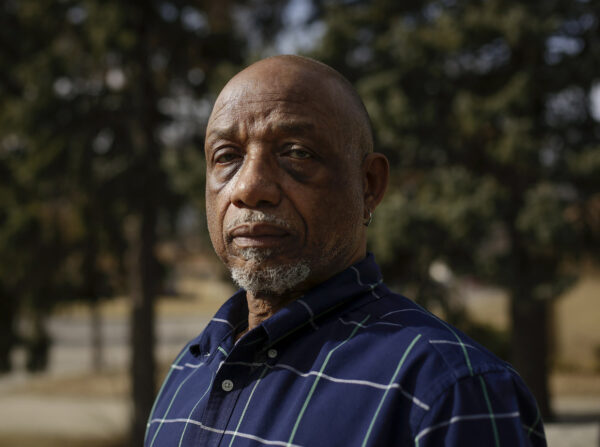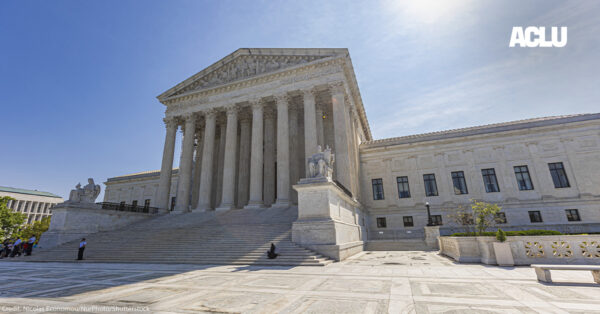Racial Justice
Fund for Empowerment v. Phoenix, City of
Fund for Empowerment is a challenge to the City of Phoenix’s practice of conducting sweeps of encampments without notice, issuing citations to unsheltered people for camping and sleeping on public property when they have no place else to go, and confiscating and destroying their property without notice or process.
Status: Ongoing
View Case
Learn About Racial Justice
Featured
U.S. Supreme Court
Sep 2023

Racial Justice
Women's Rights
United States v. Rahimi
Whether 18 U.S.C. § 922(g)(8), which prohibits the possession of firearms by persons subject to domestic-violence restraining orders, violates the Second Amendment on its face.
U.S. Supreme Court
Sep 2023

Racial Justice
Muldrow v. City of St. Louis
Do employees claiming that they have been denied a transfer because of their race have to demonstrate in addition that the transfer caused a significant material disadvantage?
Court Case
Jun 2020

Racial Justice
Defy Ventures, Inc. v. Small Business Administration
Suing the Trump administration to lift its unlawful exclusion of businesses owned by people with criminal records from being eligible for Paycheck Protection Act funds
California
Mar 2019

Racial Justice
MediaJustice, et al. v. Federal Bureau of Investigation, et al.
On March 21, 2019, the American Civil Liberties Union and MediaJustice, formerly known as "Center for Media Justice," filed a Freedom of Information Act lawsuit seeking records about FBI targeting of Black activists. The lawsuit enforces the ACLU and MediaJustice’s right to information about a 2017 FBI Intelligence Assessment that asserts, without evidence, that a group of so-called “Black Identity Extremists” poses a threat of domestic terrorism. The Intelligence Assessment was widely disseminated to law enforcement agencies nationwide, raising public concern about government surveillance of Black people and Black-led organizations based on anti-Black stereotypes and First Amendment protected activities.
Court Case
Aug 2015

Racial Justice
Disability Rights
S.R. v. Kenton County Sheriff's Office
A deputy sheriff shackled two elementary school children who have disabilities, causing them pain and trauma, according to a federal lawsuit filed today by the American Civil Liberties Union, the Children's Law Center, and Dinsmore & Shohl.
All Cases
125 Racial Justice Cases

Wisconsin
Oct 2024
Racial Justice
Criminal Law Reform
Collins et al. v. The City of Milwaukee et al.
On February 21, 2017, the American Civil Liberties Union, the ACLU of Wisconsin, and the law firm of Covington & Burling LLP filed a class-action lawsuit against the City of Milwaukee in the U.S. District Court for the Eastern District of Wisconsin. This lawsuit challenged the Milwaukee Police Department’s unconstitutional stop-and-frisk program that targeted tens of thousands of people without reasonable suspicion of criminal activity, primarily driven by racial profiling.
Explore case
Wisconsin
Oct 2024

Racial Justice
Criminal Law Reform
Collins et al. v. The City of Milwaukee et al.
On February 21, 2017, the American Civil Liberties Union, the ACLU of Wisconsin, and the law firm of Covington & Burling LLP filed a class-action lawsuit against the City of Milwaukee in the U.S. District Court for the Eastern District of Wisconsin. This lawsuit challenged the Milwaukee Police Department’s unconstitutional stop-and-frisk program that targeted tens of thousands of people without reasonable suspicion of criminal activity, primarily driven by racial profiling.

U.S. Supreme Court
Sep 2024
Racial Justice
Criminal Law Reform
Carpenter v. United States
This case concerns the First Step Act of 2018, in which Congress made major reductions to the mandatory minimum sentences for certain federal drug and firearm offenses. These changes result in sentences many decades shorter than were required under the previous laws. The question in this case was whether people who were initially sentenced prior to enactment of the First Step Act, but whose sentences were vacated and remanded for resentencing after enactment of the law, can benefit from its major reductions in applicable mandatory minimums. For defendants like Mr. Carpenter, who was originally sentenced to a draconian 116 years in prison as a result of the pre-First Step Act mandatory minimums, applying the First Step Act can mean the difference between dying in prison and having the opportunity to eventually go free. Unfortunately, although there is a split among federal courts of appeals on this question, the Supreme Court denied cert in this case in February 2024.
Explore case
U.S. Supreme Court
Sep 2024

Racial Justice
Criminal Law Reform
Carpenter v. United States
This case concerns the First Step Act of 2018, in which Congress made major reductions to the mandatory minimum sentences for certain federal drug and firearm offenses. These changes result in sentences many decades shorter than were required under the previous laws. The question in this case was whether people who were initially sentenced prior to enactment of the First Step Act, but whose sentences were vacated and remanded for resentencing after enactment of the law, can benefit from its major reductions in applicable mandatory minimums. For defendants like Mr. Carpenter, who was originally sentenced to a draconian 116 years in prison as a result of the pre-First Step Act mandatory minimums, applying the First Step Act can mean the difference between dying in prison and having the opportunity to eventually go free. Unfortunately, although there is a split among federal courts of appeals on this question, the Supreme Court denied cert in this case in February 2024.

Montana Supreme Court
May 2024
Racial Justice
+2 Issues
Held v. Montana
This case pending before the Montana Supreme Court asks, among other things, whether the claims of sixteen youth plaintiffs challenging Montana energy policy present a political question under the Montana Constitution. The ACLU’s State Supreme Court Initiative, alongside the ACLU of Montana, filed an amicus brief arguing that the claims do not present a political question and, moreover, that state courts should not wholesale adopt the federal political questions doctrine.
Explore case
Montana Supreme Court
May 2024

Racial Justice
+2 Issues
Held v. Montana
This case pending before the Montana Supreme Court asks, among other things, whether the claims of sixteen youth plaintiffs challenging Montana energy policy present a political question under the Montana Constitution. The ACLU’s State Supreme Court Initiative, alongside the ACLU of Montana, filed an amicus brief arguing that the claims do not present a political question and, moreover, that state courts should not wholesale adopt the federal political questions doctrine.

Iowa
Feb 2024
Racial Justice
Criminal Law Reform
State of Iowa v. Lawrence George Canady III
In this case, the Iowa Supreme Court considered when rap lyrics are admissible evidence in criminal trials. The State sought further review of a court of appeals decision which reversed the defendant's criminal convictions and remanded for a trial based on errors in the admission of evidence. Together with the Speech, Privacy, and Technology Project and the ACLU of Iowa, the State Supreme Court Initiative filed an amicus brief arguing that such evidence should usually be excluded because it is rarely probative and yet creates a high risk of prejudice to the defendant. The Iowa Supreme Court ultimately reversed the Court of Appeals decision, but for narrow and fact-specific reasons. And the Iowa Supreme Court acknowledged that, in cases not involving the peculiar facts of Canady's case, other courts had expressed concerns about the risk that a jury will unfairly use rap lyrics and music as evidence of a defendant's guilt.
Explore case
Iowa
Feb 2024

Racial Justice
Criminal Law Reform
State of Iowa v. Lawrence George Canady III
In this case, the Iowa Supreme Court considered when rap lyrics are admissible evidence in criminal trials. The State sought further review of a court of appeals decision which reversed the defendant's criminal convictions and remanded for a trial based on errors in the admission of evidence. Together with the Speech, Privacy, and Technology Project and the ACLU of Iowa, the State Supreme Court Initiative filed an amicus brief arguing that such evidence should usually be excluded because it is rarely probative and yet creates a high risk of prejudice to the defendant. The Iowa Supreme Court ultimately reversed the Court of Appeals decision, but for narrow and fact-specific reasons. And the Iowa Supreme Court acknowledged that, in cases not involving the peculiar facts of Canady's case, other courts had expressed concerns about the risk that a jury will unfairly use rap lyrics and music as evidence of a defendant's guilt.

New York
Jan 2024
Racial Justice
Mieles v. Ronald McDonald House
Mieles v. Ronald McDonald House of the Greater Hudson Valley et al. challenges a discriminatory housing policy that bans individuals with a wide range of convictions from critical housing without consideration of the nature, severity, or recency of the conviction or incident, or an individualized assessment. Such policies unjustly and disproportionately exclude Latine and Black people from housing, in violation of the Federal Housing Act and New York State Human Rights law.
Explore case
New York
Jan 2024

Racial Justice
Mieles v. Ronald McDonald House
Mieles v. Ronald McDonald House of the Greater Hudson Valley et al. challenges a discriminatory housing policy that bans individuals with a wide range of convictions from critical housing without consideration of the nature, severity, or recency of the conviction or incident, or an individualized assessment. Such policies unjustly and disproportionately exclude Latine and Black people from housing, in violation of the Federal Housing Act and New York State Human Rights law.
